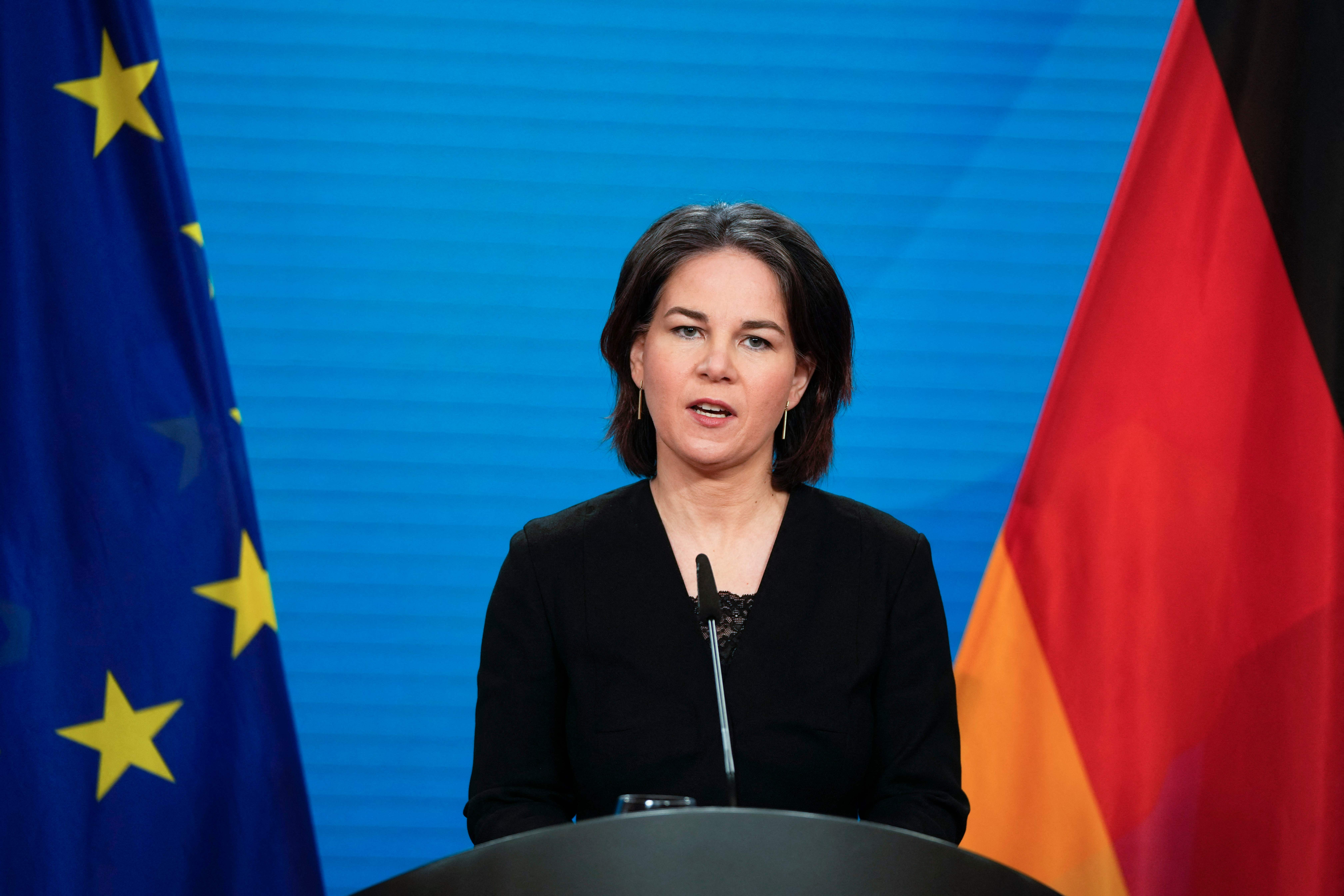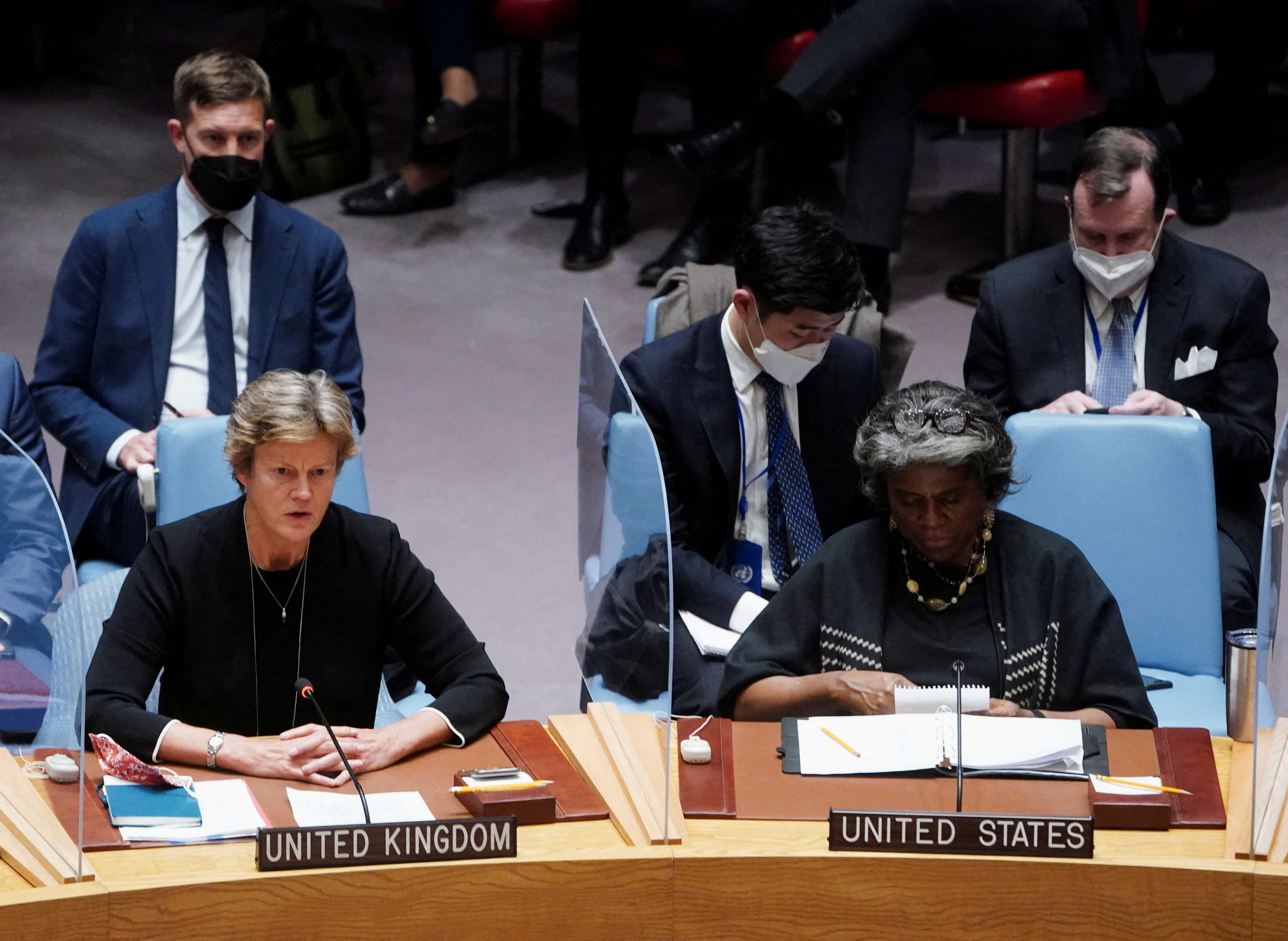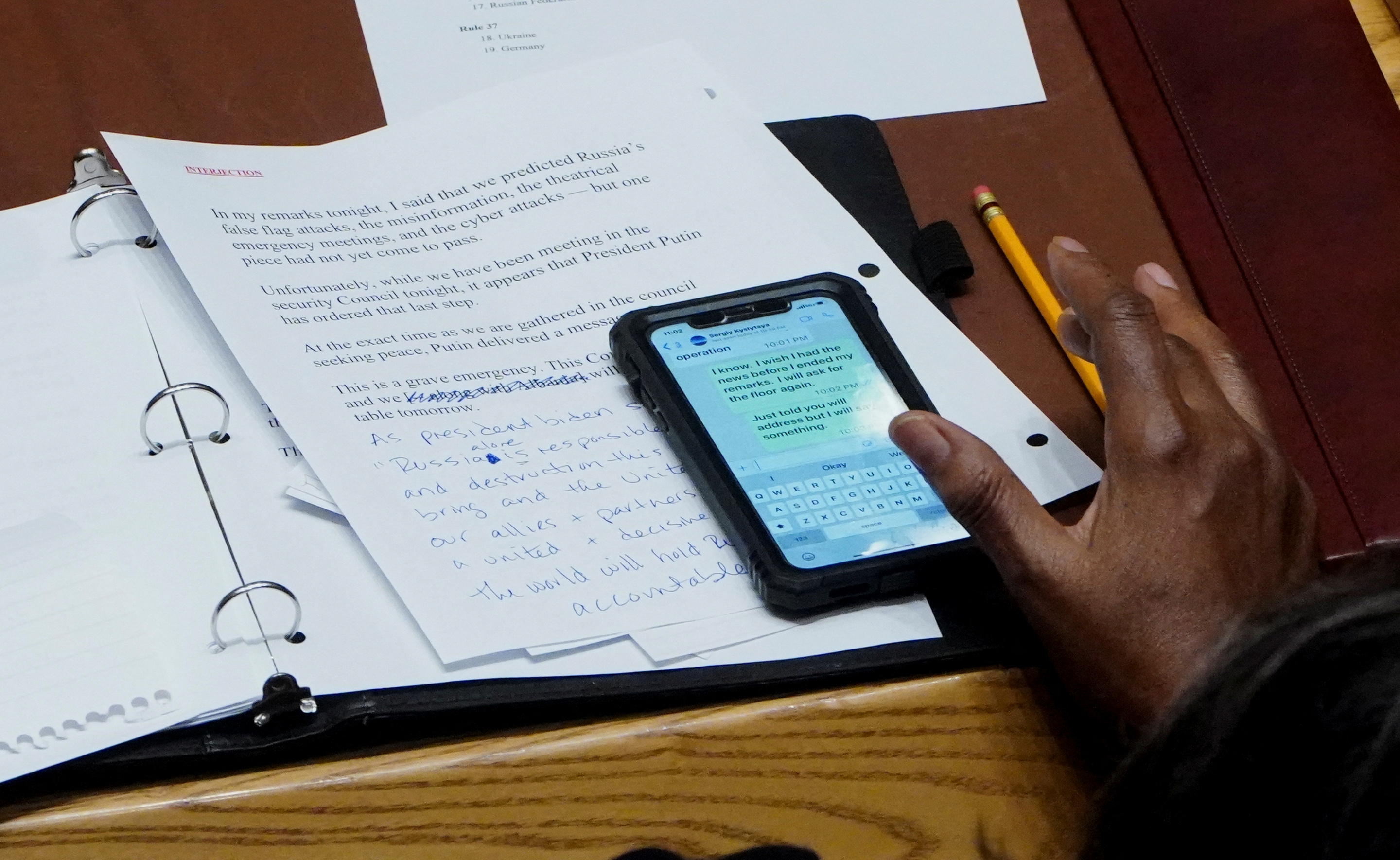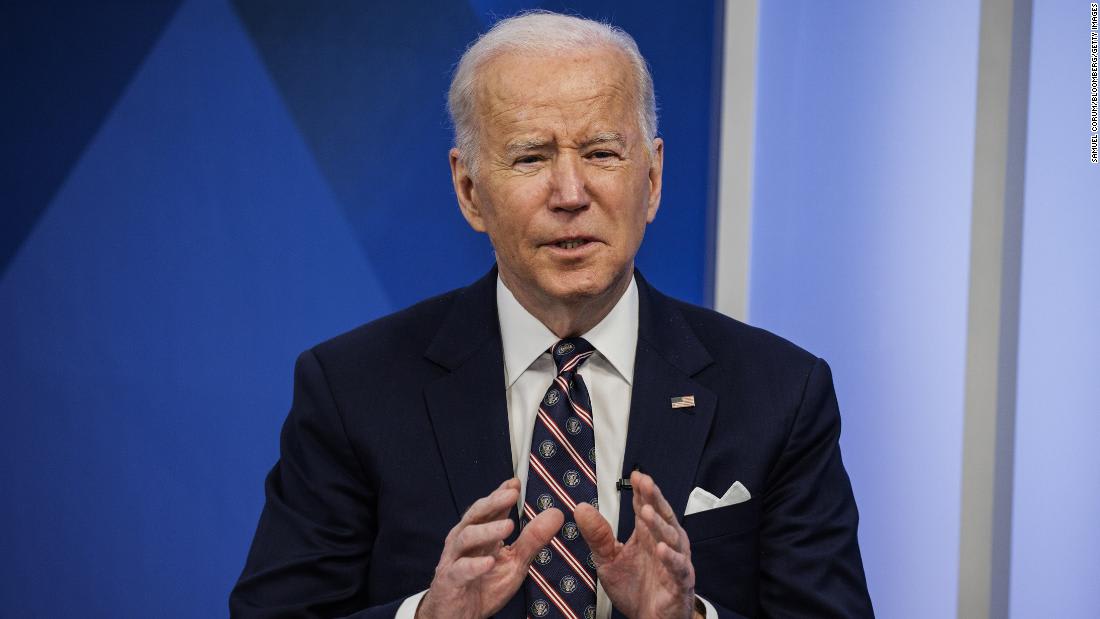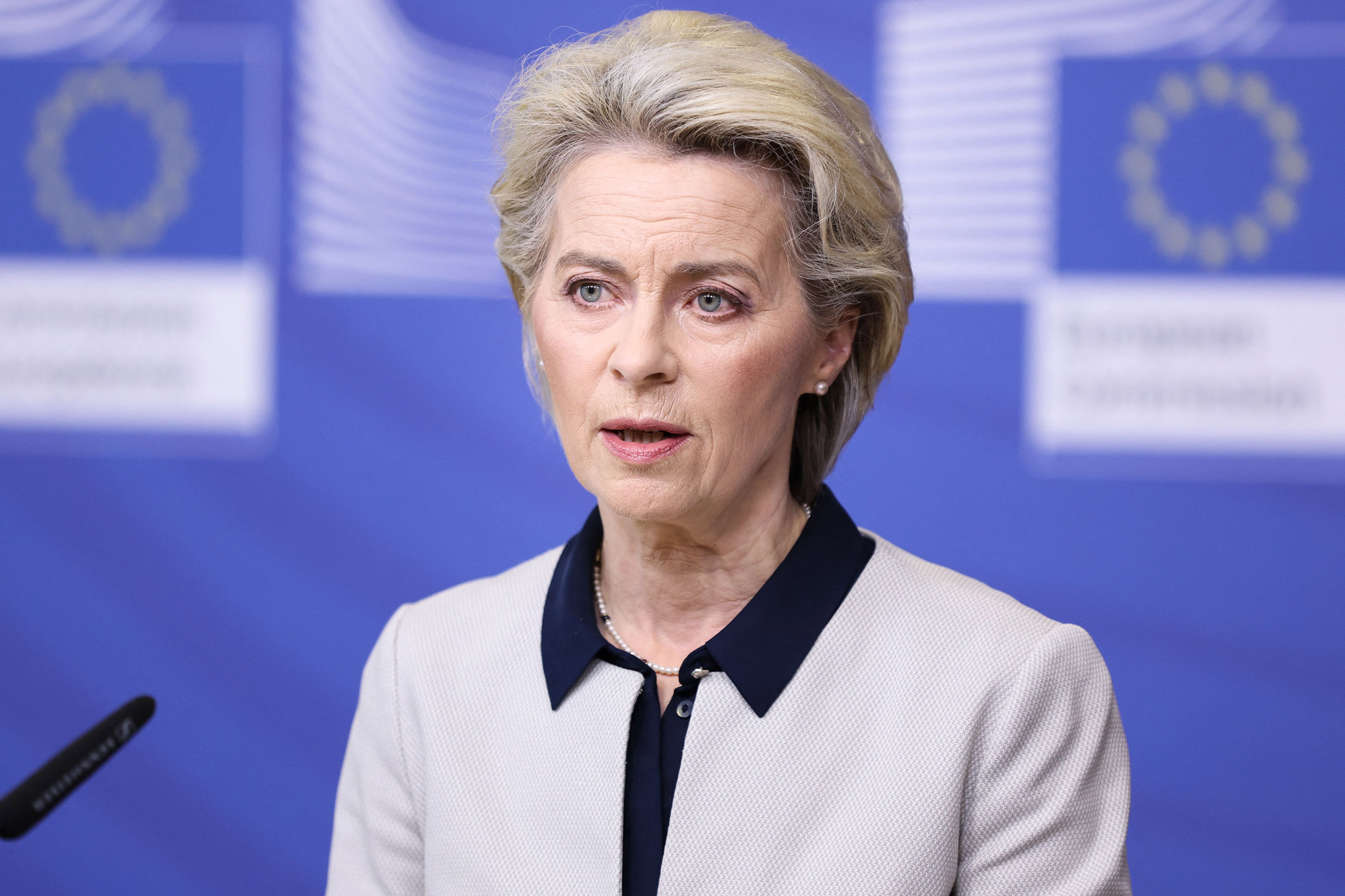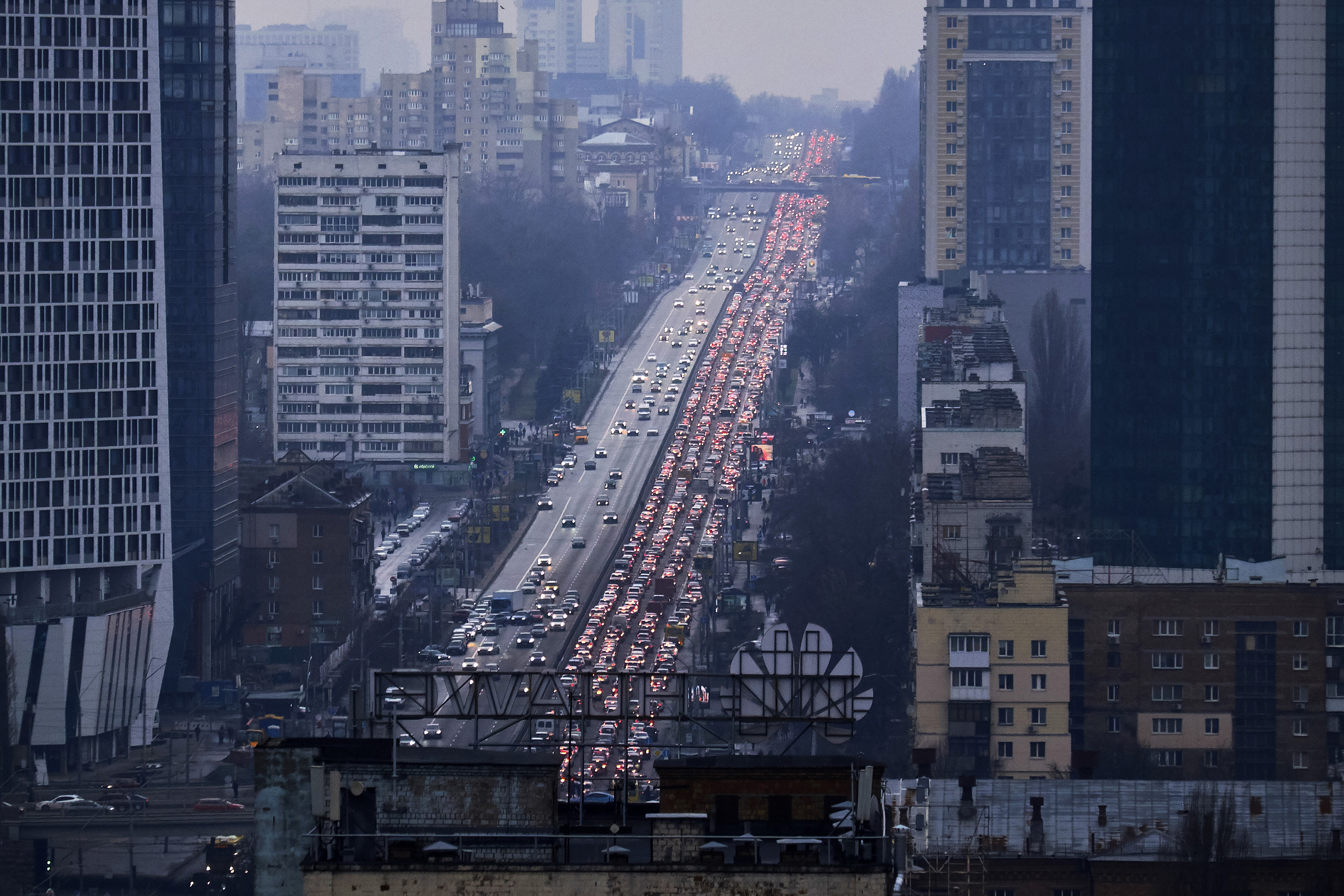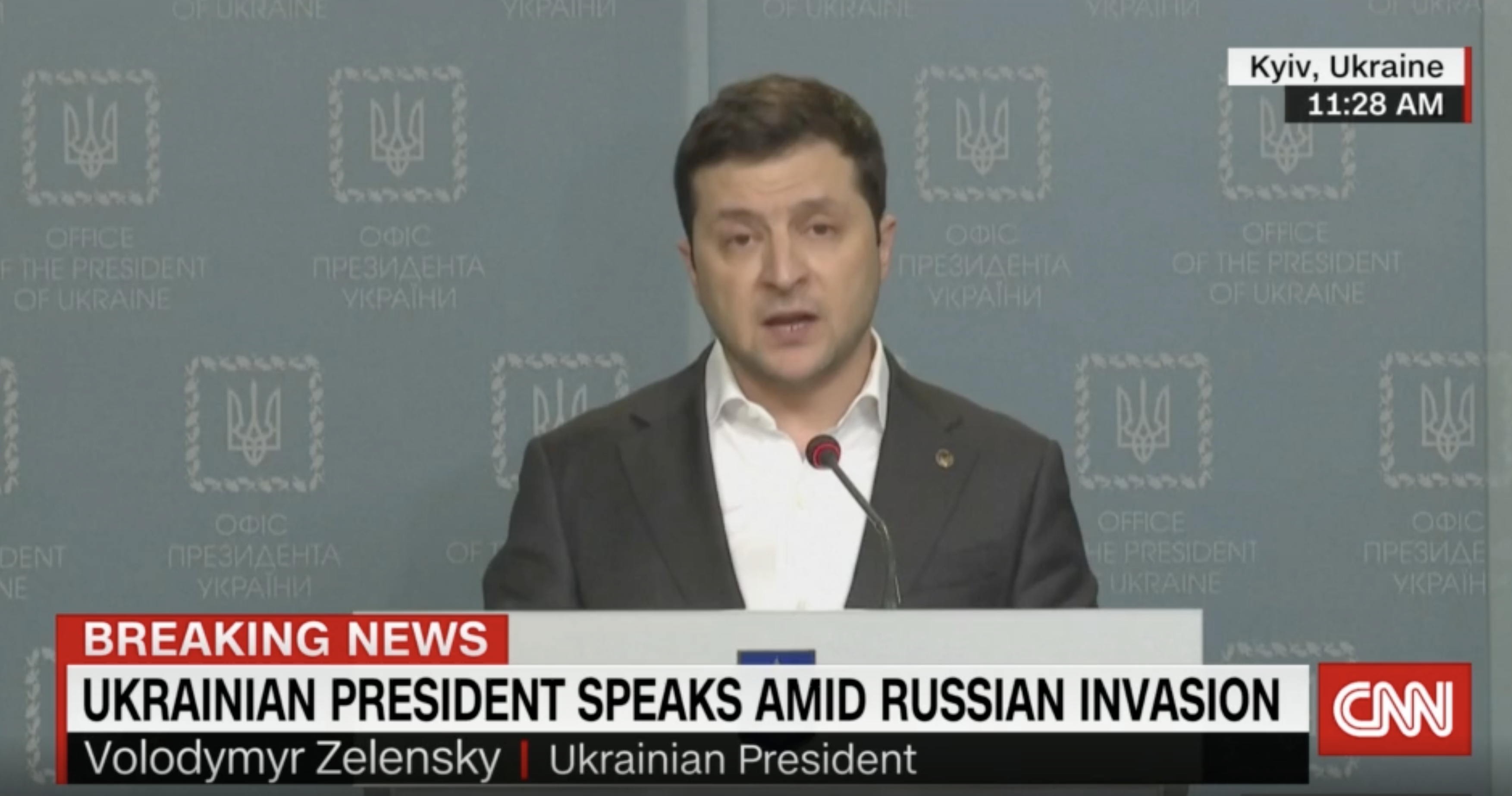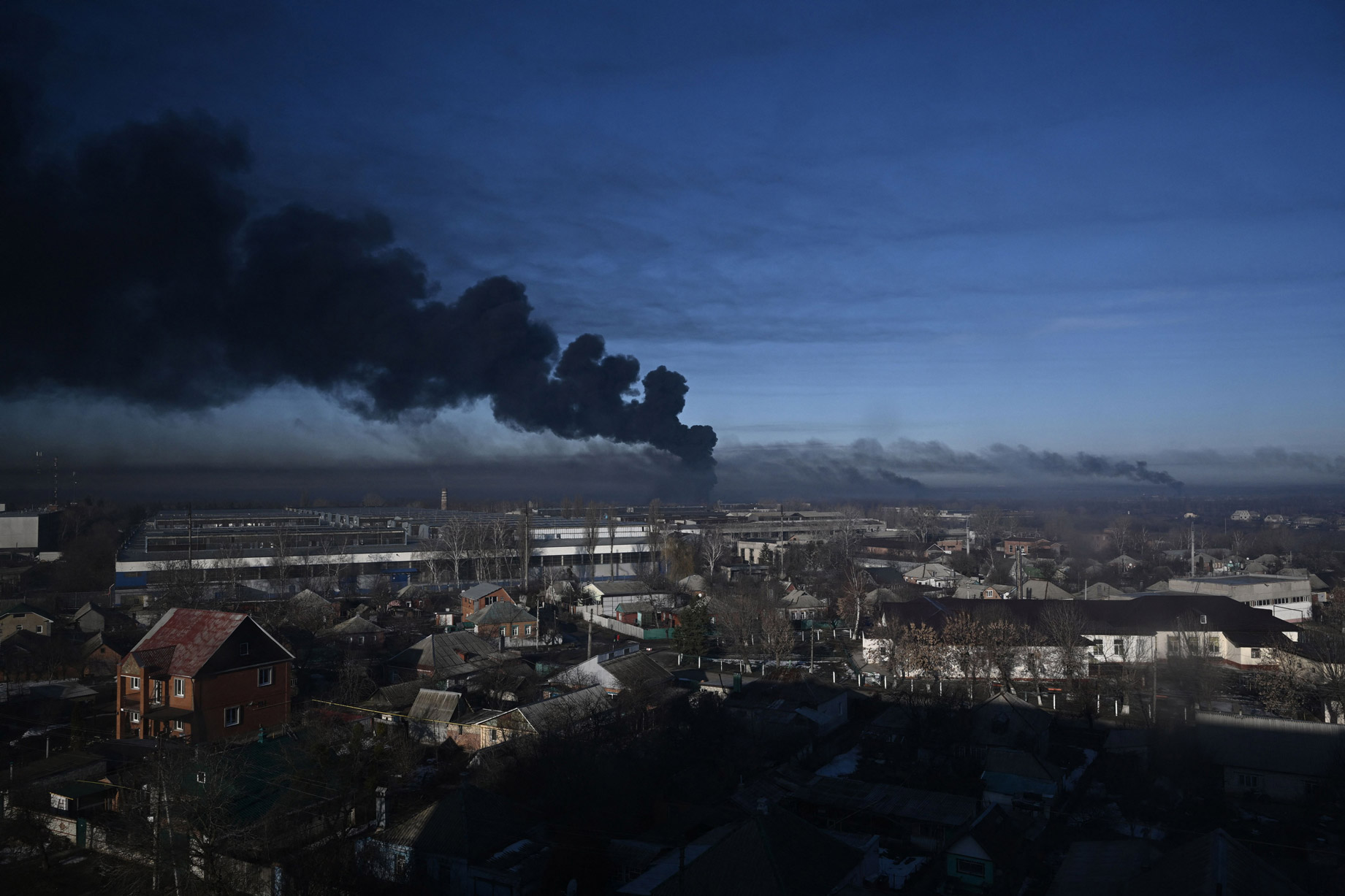
Russian forces invaded Ukraine from three sides, while explosions rang through a number of cities, including the capital Kyiv, in a broad attack that began before dawn on Thursday.
Here's a timeline of how and when it unfolded.
Putin announces attack: Russian President Vladimir Putin made a speech early Thursday morning, saying he had decided "to conduct a special military operation ... to protect people who have been subjected to abuse and genocide by the Kyiv regime for eight years," repeating a baseless claim about Ukraine's Russian-separatist-backed Donbas region.
He denied, however, that Russia was planning to occupy Ukrainian territories. "We are not going to impose anything on anyone by force."
But in a deeply menacing passage Putin added that anyone trying to interfere with or threaten Russia would lead to "consequences that you have never experienced in your history."
Ukrainian President Volodymyr Zelensky responded several hours later with a minute-long speech of his own, saying he had spoken to US President Joe Biden and that the United States was rallying international support for Ukraine.
"The West is with us," he said, and announced martial law across the country.
A pre-dawn assault: The invasion began hours before dawn with a series of missile attacks against locations near Kyiv, as well as the use of long-range artillery against the northeastern city of Kharkiv, near the Russian border.
It quickly spread across central and eastern Ukraine as Russian forces attacked the country from three sides. In the hours before daylight, people in the cities of Odessa, Dnipro, Mariupol and Kramatorsk reported huge blasts.
Immediate details of casualties were unclear. The Ukrainian Defense Ministry claimed its troops sustained no losses.
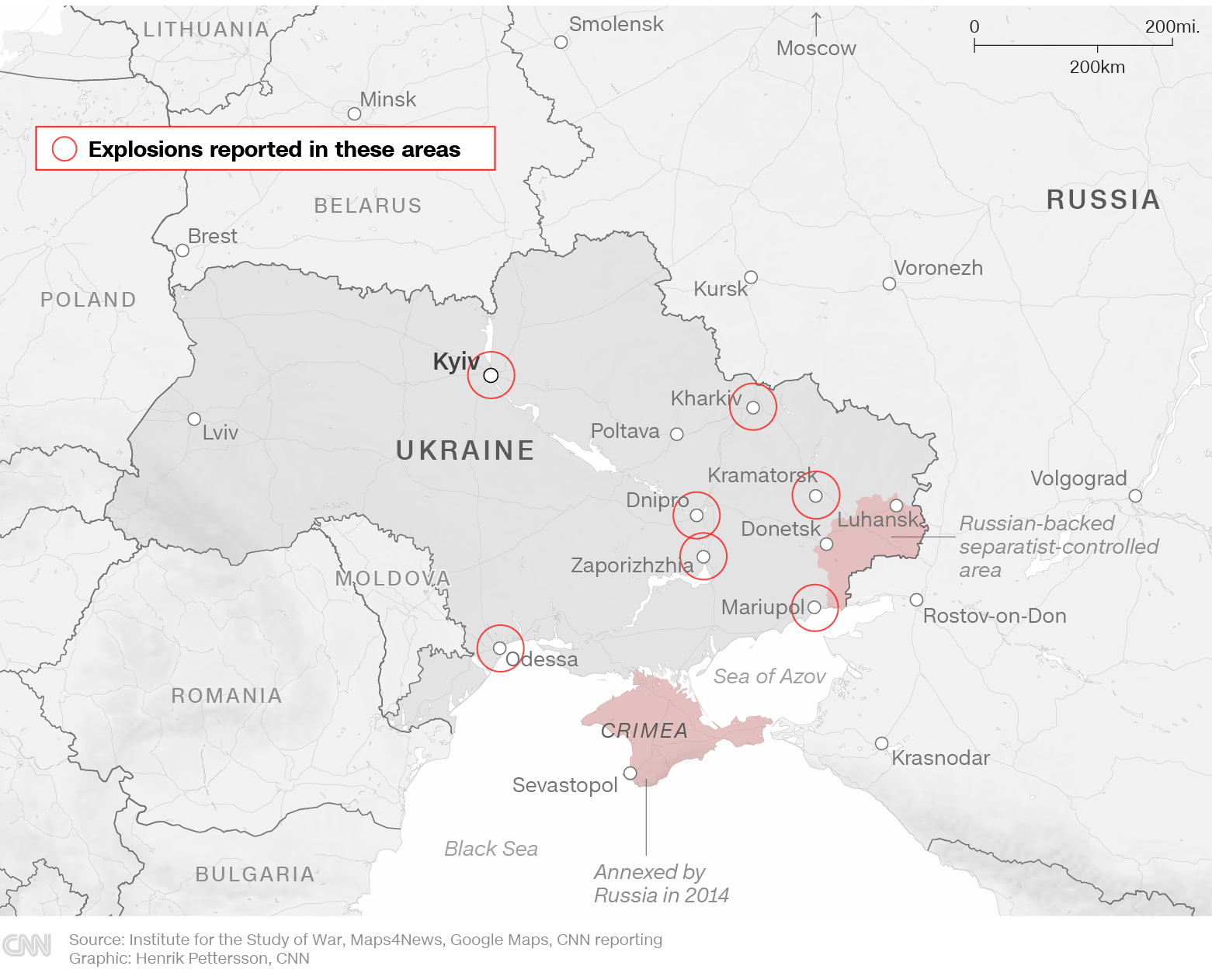
But there was clearly substantial damage in and around several cities. In Kharkiv, video emerged of an apartment block that had been damaged by a missile or long-range artillery. Another video showed a rocket embedded in a road. The State Emergency Service reported that six people were trapped in rubble in Nizhyn.
Ukraine's interior ministry said ballistic missiles had been used as part of the offensive, while jets were heard over the central city of Zaporizhzhye.
The Russians used a wide array of weaponry in their assault, including attack aircraft and helicopters, tanks, long range artillery and missiles.
Dawn breaks: After dawn, air sirens sounded across Kyiv and also in the western city of Lviv. A short time later a single, unidentifiable plane roared above the capital.
As the day began in Kyiv, streams of vehicles could be seen crossing the North Bridge, heading west, away from the focus of the Russian assault. Other people in the capital sought shelter in the subway.
Across the country long lines formed at gas stations and cash machines. A few people gathered in the streets of Kharkiv to pray.
Under overcast skies on Friday morning, Kiev appeared to be in a state of shock. The streets were quiet and schools closed. Here and across the country, Ukrainians are just beginning to come to terms with a cataclysmic night and the prospect of a deeply uncertain future.
CNN teams across Ukraine and Russia contributed to this report.
